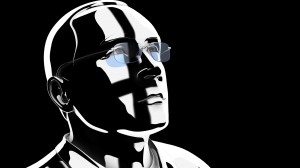‘Khodorkovsky’ looks at an unlikely political prisoner

Mikhail Khodorkovsky, once the richest man in Russia, now sits in a Siberian prison with only hindsight to keep him company. He has been there since 2003, after being arrested and found guilty on fraud charges for unpaid taxes. In his confinement, he has attained an almost mythic status as a disgraced oligarch. You either love him, hate him or want to vote for him.
His future will likely be as unpredictable as his past.
It should come as no surprise that this man’s story from the top of the mountain to the bottom of the lowest valley makes for thrilling, engaging cinema.
Cyril Tuschi’s new film, simply titled Khodorkovsky, adeptly investigates how this influential man ended up behind bars. It pieces together talking-head interviews with associates and friends of the former head of Yukos, Russia’s leading oil company. The conversations are always enlightening and much is learned through the 111-minute feature.
Still, what the documentary fails to fully capture is the symbolism behind Khodorkovsky’s trial and imprisonment. Knowing the particulars of the Yukos business is great explanatory information, but it misses the crux of the international incident. Here is a man who many believe was wrongfully arrested simply because he posed as a political threat to Vladimir Putin, former president and current prime minister of Russia. Yet, on the other hand, many Russians believe the oligarch stole from the country’s coffers. Which is the fairer characterization?
Investigating the “political” nature of Khodorkovsky is a far more worthy endeavor. There will probably never be a day where Yukos’ financial craziness is settled. But understanding why this man was arrested, and, just as importantly, why he decided not to flee the country like his colleagues is crucial. Through this one man and his unbelievable case, the current status of Russia is brought under the microscope. Is this a country that has shed its violent, nondemocratic past? Or, does Putin and company wield a dangerous amount of power against their opponents?
The fact that Tuschi’s film comes up short in answering some of these profound questions doesn’t take away from the effectiveness of the documentary. Showcasing both taped interviews and clever animated sequences, Khodorkovsky uses a spiral method to get closer to its subject matter. Its culmination is a brief interview that Tuschi is able to conduct with Khodorkovsky while the prisoner is held in a glass box.
In these final words, Khodorkovsky doesn’t cry, doesn’t grovel, doesn’t condemn. He’s even-tempered, logical and to the point. He’s speaking like a politician, perhaps the eventual leader of the opposition.
But until the future breaks the horizon, Khodorkovsky is stuck in the cold expanse of nothingness — left to his thoughts and regrets.
Sometimes getting a handle on a country’s political system and power-dealing is an impossible task. There are too many characters, too many plot turns, too much money and power. What Tuschi is able to harness is a personal side to bigwig political corruption; he chews on difficult issues and spits them out in an understandable way. As he performs this synthesis, the filmmaker seems to victimize Khodorkovsky a bit. His possible guilt is never as fully explored as his possible innocence. This makes the documentary somewhat one-sided, but all is forgiven after this unusually thrilling case is laid out in front of the audience’s collective eye.
It’s difficult not to leave the movie theater without an opinion on this man. You’ll likely have as many questions as you did in the beginning, but that’s not necessarily the hallmark of failure. It might be the closest thing to the truth.
By John Soltes / Publisher / John@HollywoodSoapbox.com


